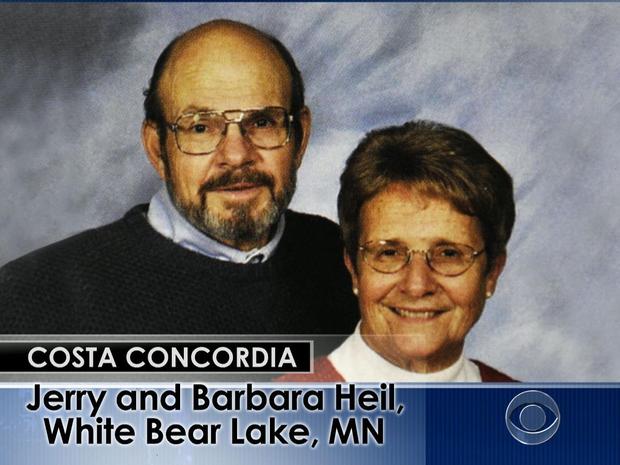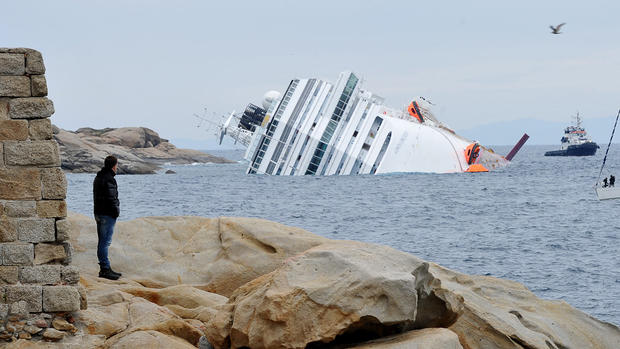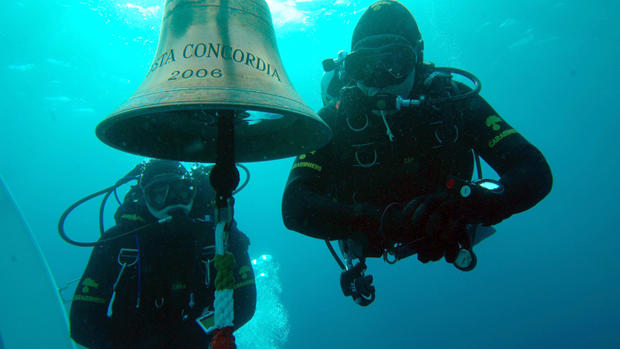Italians anxious for wrecked liner to disappear
(CBS News) GIGLIO, Italy - Four months after the tragedy, Italian authorities today identified five bodies recovered from the Costa Concordia.
They include Jerry and Barbara Heil of White Bear Lake, Minn. - the only Americans among the 32 victims.
The Italian cruise liner is still lodged on a reef off the island of Giglio. CBS News correspondent Allen Pizzey reports on the salvage effort.
The fate of the massive liner is still to be determined. But there is a growing sentiment that the rock which ripped the 160-foot gash in the hull should be turned into a monument for those who died.
Only two bodies remain unaccounted for. And the environmental catastrophe many feared has been averted. All the fuel oil has been pumped off, along with sewage and dangerous liquids such as cleaning materials for the 4,000 people who once traveled on the Costa Concordia.
The trappings of what was once luxury - deck chairs, furniture and even mattresses - are being retrieved from the seabed and brought ashore.
It can't go fast enough as far as the people of Giglio Island are concerned.
"You know, it doesn't belong here. It's huge. It's not part of the scenery and it's not what Giglio is famous for," said Elizabetta Nanni, with an Italian tourist board.
Boatman Mauro Pretti, who runs a shuttle service for journalists and others going out to the wreck, agrees.
"I don't like this situation because we are a touristic island," says Pretti.
He'd like to see the boat gone.
"Si, prima possibile," he says in Italian, "As soon as possible."
Refloating the Costa Concordia is expected to cost about $300 million, roughly half the value of the ship when it was built.
Then it will be up to the insurers to decide whether the vessel will be put back into service or cut up for scrap.
How exactly do you re-float a ship so large?
First, the hole in the hull would have to be patched. Then industrial-strength cranes, sitting on barges secured to the sea floor, would right the ship. Water would be pumped out , and air would be pumped in.
Then a fleet of tug boats would tow it away.
As for the captain of the Costa Concordia, Francesco Schettino, he's still under house arrest awaiting formal charges which could include manslaughter.



